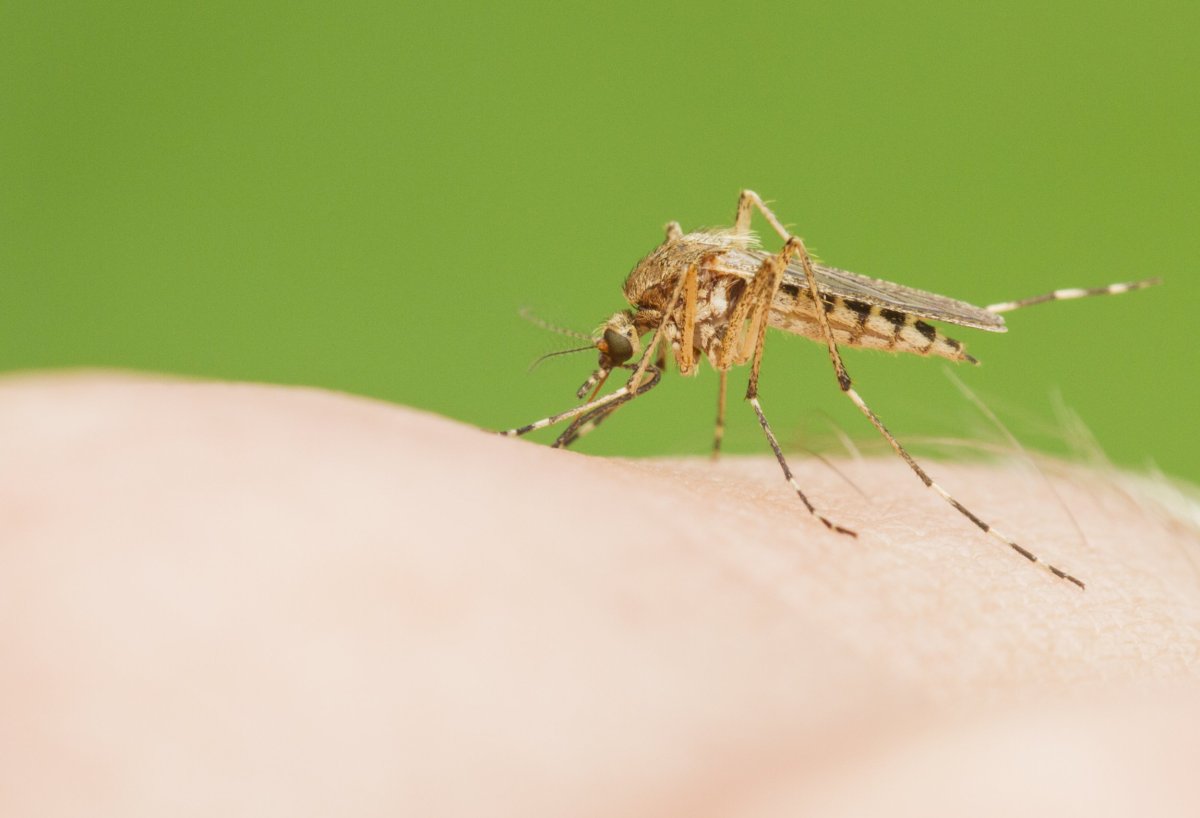A vaccine against the Zika virus could one day be used to fight the deadly brain cancer that claimed the life of Senator John McCain, according to a study in mice.
Researchers used a vaccine against the mosquito-borne virus to kill human glioblastoma brain cells which had been implanted into rodents.
Glioblastoma is the most common and fastest growing form of astrocytoma; tumors which start in the glial cells of the brain.
Currently, most people diagnosed with the condition die within two years. Doctors can try to treat glioblastoma with surgery to remove the cancerous cells, and blast them with radiation and chemotherapy. However, as the disease spreads, it becomes difficult to differentiate healthy brain cells from cancerous glioblastoma stem cells, and the condition is therefore almost impossible to completely remove.

Read more: New prostate cancer DNA spit test developed by scientists
Each year, glioblastoma kills around 15,000 adults in the U.S. The condition recently made headlines as the disease that killed senator John McCain at the age of 81. Symptoms include recurring headaches, loss of appetite, blurred vision, vomiting, shifts in personality and the ability to learn, seizures and the gradual loss of speech.
"Thus, development of an effective therapy to kill glioblastoma stem cells is urgently needed," Dr. Pei-Yong Shi, professor of genetics at the University of Texas Medical Branch and author of the study published in the journal mBio told Newsweek.
As both the Zika virus and glioblastoma can affect the brain, the team hypothesized that the former could be harnessed to treat the latter.
In 2015, countries in the Americas, including Brazil, as well as parts of Africa, were hit by a public health crisis following outbreaks of Zika and its link to encephalitis, a condition where the brain becomes swollen.
The majority of Zika cases result in a mild fever, rash, aches and pains, conjunctivitis and a headache. But if a pregnant woman becomes infected, the virus can target neural progenitor cells in her fetus, putting the infant at risk of being born with microcephaly. This is where the head develops smaller than normal.

The study showed that a live-attenuated Zika vaccine (containing a weakened version of the virus that does not cause disease in humans) could selectively infect and kill human glioblastoma stem cells, explained Shi. That's because glioblastoma stem cells have similar properties to neural stem cells.
To investigate whether ZIKV-LAV, a vaccine developed at the University of Texas shown to protect mice and non-human primates against the virus, could kill human glioblastoma stem cells, the scientists injected a combination of glioblastoma stem cells from two human donors and the vaccine into mice.
The animals dosed only with the stem cells developed tumors. But those injected with the combination lived to around 50 days, 20 days longer than the stem cell mice.
When the team sequenced the RNA (a molecule that helps with gene expressions) of glioblastoma stem cells exposed to the vaccine and then those which weren't, they found the virus prompted an antiviral reaction in the exposed cells in what is known as an oncolytic response.
Before undergoing surgery, cancer patients could be given the Zika vaccine to "let the viruses hunt down the GSCs [glioblastoma stem cells] and eliminate them," said virologist Dr. Cheng-Feng Qin of the Chinese Academy of Military Medical Sciences in Beijing, who worked on the study.
Shi said: "Scientists may turn the 'bad' side of a devastating pathogen—Zika virus—for potential cancer therapy."
However, he cautioned any potential treatment which could emerge from the study is far from being rolled out.
"We still need to further improve the specificity of the cancer-killing ability, while retain the safety of the vaccine strain," Shi explained. "For example, we need to make sure that the therapeutic vaccine virus does not infect and kill normal neurons in humans."
Dr. Harry Bulstrode, brain tumor expert funded by the charity Cancer Research U.K. who is researching how Zika could be used to treat aggressive brain tumors, who was not involved in the study, told Newsweek: "This study is another interesting piece in the jigsaw, but it is never going to demonstrate what we believe to be the really exciting properties of the virus. These are its ability to cross the blood-brain barrier and to selectively infect and concentrate in the brain tumor stem cells left behind after surgery."
Uncommon Knowledge
Newsweek is committed to challenging conventional wisdom and finding connections in the search for common ground.
Newsweek is committed to challenging conventional wisdom and finding connections in the search for common ground.
About the writer
Kashmira Gander is Deputy Science Editor at Newsweek. Her interests include health, gender, LGBTQIA+ issues, human rights, subcultures, music, and lifestyle. Her ... Read more
To read how Newsweek uses AI as a newsroom tool, Click here.








